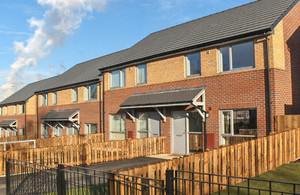Property
Property can be defined as something that a person or business has legal title over. Having legal title over property provides the owner with certain enforceable rights.
Property may be categorised as tangible (‘real’) or intangible. In the built environment, tangible property refers to real estate or land, whereas ‘personal property’, or chattel, is all that which is not ‘real property’.
In English common law, property includes all structures integrated with or affixed to the land, such as; buildings, dams, ponds, canals, roads, and so on. Property tends to have a monetary value attached to it and is therefore treated as an asset. However, it can also be seen as a liability, for example, if there is contamination on land or if someone is injured while on land and a court holds the property owner responsible for not preventing their injury.
Property can also be viewed as:
- A means to an end, providing space for a business to establish a working environment.
- An investment.
- A corporate asset that can be used as collateral to raise money.
- A development opportunity in which profit can be generated by adding value.
Property ownership is one of the key tenets of the capitalist socio-economic system. Adam Smith, one of the foremost capitalist thinkers, wrote that one of the ‘sacred laws of justice is to guard a person’s property and possessions’.
Property ownership may be private, collective or common; with the legal determination relating to who has the ‘bundle of rights’ and duties over the property. The four basic components, often referred to as a ‘bundle of rights’, of an economic good are:
- The right to use the good or resource.
- The right to derive income from the good or resource.
- The right to transfer the good or resource to others.
- The right to enforce property rights.
Ownership is referred to as being self-propagating, which means that the property owner is legally entitled to own the economic benefits of that property.
In economics, property rights are theoretical and legal constructs for determining control over, and use of, a resource or good. The basis for all forms of market exchange is derived from property rights.
Property developers construct, redevelop or refurbish buildings in order to make a profit. They are not the same as a property investors, who purchase completed buildings and sell them or rent them for profit, however, there is clearly considerable overlap.
Investment property is real estate that is used for the purposes of investment, with the aim being to earn a financial return. This return can be earned either through rental income, the capital gain on future resale of the property or, as is typical, both.
NB Digitisation for construction product manufacturers: a plain language guide, published by the Institution of Engineering and Technology (IET) in 2021 defines a property as: ‘…an inherent, or acquired feature of, a construction object, such as thermal efficiency or colour.’
Designing Buildings Wiki has a range of articles relating to property, including:
- Building.
- Commercial premises.
- Commonhold.
- Common land.
- Developer.
- Easements.
- Estate.
- Equity and loan capital for property development.
- Freehold.
- Glossary of property law terms.
- Housing tenure.
- Investment property.
- Land.
- Land acquisition.
- Land law.
- Leasehold.
- Legal indemnities for property.
- Liens.
- Mortgage.
- Owner.
- Personal property.
- Premises.
- Preparing to sell a commercial property.
- Place.
- Property chain.
- Property development finance.
- Property guardianship.
- Property marketing.
- Property ownership.
- Property rights.
- Property valuation.
- Off-plan property.
- Restrictive covenant.
- Right of entry.
- Right to access land.
- Specialised property.
- Types of building.
- Units.
Featured articles and news
British Architectural Sculpture 1851-1951
A rich heritage of decorative and figurative sculpture. Book review.
A programme to tackle the lack of diversity.
Independent Building Control review panel
Five members of the newly established, Grenfell Tower Inquiry recommended, panel appointed.
ECA progress on Welsh Recharging Electrical Skills Charter
Working hard to make progress on the ‘asks’ of the Recharging Electrical Skills Charter at the Senedd in Wales.
A brief history from 1890s to 2020s.
CIOB and CORBON combine forces
To elevate professional standards in Nigeria’s construction industry.
Amendment to the GB Energy Bill welcomed by ECA
Move prevents nationally-owned energy company from investing in solar panels produced by modern slavery.
Gregor Harvie argues that AI is state-sanctioned theft of IP.
Heat pumps, vehicle chargers and heating appliances must be sold with smart functionality.
Experimental AI housing target help for councils
Experimental AI could help councils meet housing targets by digitising records.
New-style degrees set for reformed ARB accreditation
Following the ARB Tomorrow's Architects competency outcomes for Architects.
BSRIA Occupant Wellbeing survey BOW
Occupant satisfaction and wellbeing tool inc. physical environment, indoor facilities, functionality and accessibility.
Preserving, waterproofing and decorating buildings.





















Comments
[edit] To make a comment about this article, or to suggest changes, click 'Add a comment' above. Separate your comments from any existing comments by inserting a horizontal line.